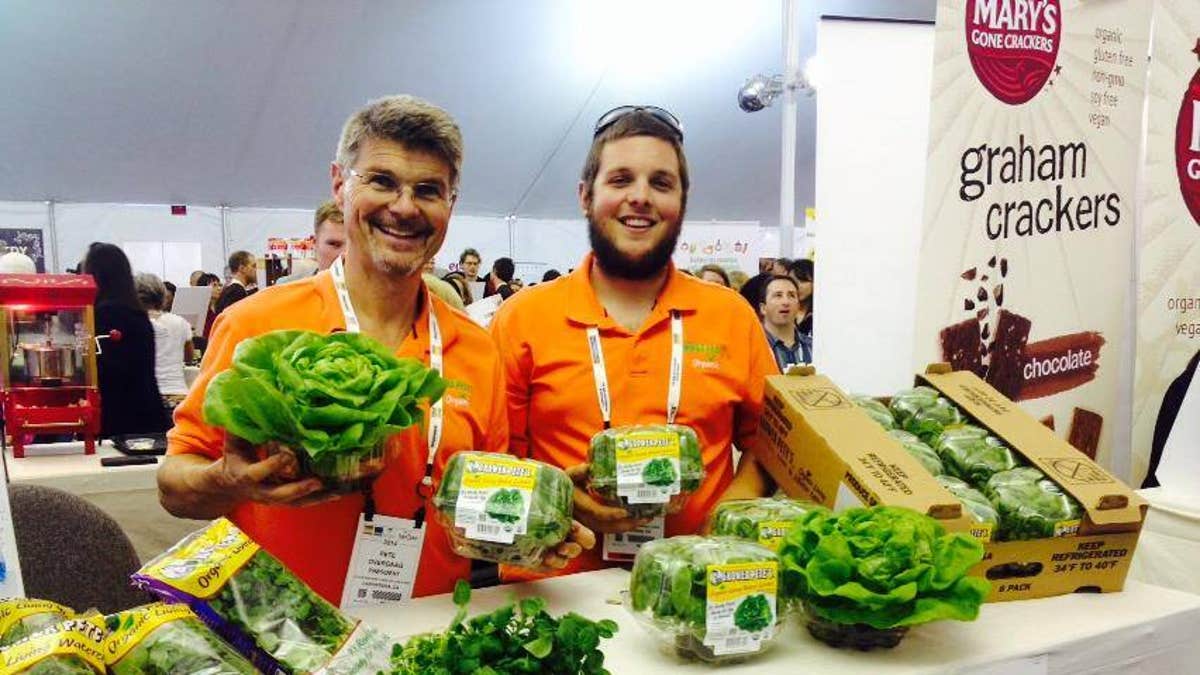
Vendors at the 2014 Natural Products Expo West (Image courtesy of Natural Products Expo.)
At the recent Natural Products Expo in Anaheim, Calif., approximately 68,000 people gathered to showcase new products, foster business relationships and forecast trends. Entirely populated by those making, selling, buying or working with natural products, the Expo gave a clear picture of emerging trends in the industry.
Sustainability is a driving force among many manufacturers of foods, supplements and cosmetics, and products produced in a sustainable manner are being placed front and center. Certified organic foods continue to grow as a category, and fair wage practices are an increasing focus as companies grapple with the reality of sourcing natural ingredients provided by impoverished workers in undeveloped countries.
More companies are also engaged in benefit-sharing activities, turning some of their profits back into the communities from which they source various ingredients. Some of the benefit-sharing projects include re-building schools, assisting with education, providing medicine in places where there is none, helping villages to obtain potable water, and helping communities protect themselves from encroachment by mining, timber, GMO agriculture and petroleum companies.
Genetically modified organisms (GMOs) were the subject of several seminars and initiatives aimed at both requiring labeling of GMO foods and achieving bans of GMO’s in foods. Scientists, medical doctors, politicians and representatives of some large corporations led panels aimed at educating the trade about the hazards of genetically modified crops. Numerous doctors, and particularly pediatricians, described apparent links between consumption of GMO’s and allergies, bowel diseases, gluten intolerance, and childhood neurological disorders. The fact that GMO’s undergo no testing for safety prior to FDA approval added fuel to the anti-GMO fire.
The herbal supplements industry is expected to grow exponentially, according to trend-spotters like Nielsen and Penton Media, who forecast big gains in herbal sales over the next few years. The unwanted effects and expenses associated with drugs, in addition to emerging science on the benefits of botanical medicines, are among the key factors fueling this growth.
Despite the fact that the FDA prohibits health information from appearing on herbal product labels, end-users are finding the information they need through publications, news agencies, popular TV health programs and the burgeoning number of online sites that support this category. Educational entities including the American Botanical Council and the American Herbal Products Association hosted large, well-attended events at the Expo. They described greatly expanded outreach programs meant to help educate the public about the health benefits of herbs.
Types of herbal remedies have expanded as well, to include new items like Saga Pro, an Angelica extract demonstrating benefit for urinary incontinence in human clinical studies, and an extract of the Malaysian herb Tongkat Ali, which has demonstrated enhancement of testosterone in middle aged men in human clinical studies. Various medicinal mushroom products, largely used to enhance compromised immune function, were also popular at the show.
One disturbing trend at the show was the increased promotion of non-sustainable, single-serve convenience packaging for products. Plastic packaging, drink boxes and multi-layered plastic-and-foil packaging run counter to environmental preservation, and effectively make the certified organic ingredients inside of them moot. Only a few companies appeared to be promoting ecologically-friendly packaging.
An increased number of attending medical doctors, PhD scientists, academic leaders, politicians, inventors and futurists suggest that the natural products industry has matured greatly. Mexico’s former president Vicente Fox was the Expo's keynote speaker, addressing a packed auditorium, and complementary medicine pioneer Dr. Andrew Weil also delivered a popular address. The natural products industry projects estimated global sales exceeding $275 billion, making this a very grown-up sector of the economy.
At its inception in 1981, Natural Products Expo West hosted about 3,000 people in the natural products trade, and there was ample room to navigate the trade show aisles. Now, densely populated and tough to navigate due to the teeming exposition crowd, this year’s Expo demonstrated that the current appetite for natural and organic products is vigorous and growing, with no end in sight.
